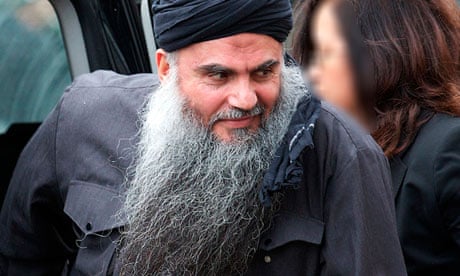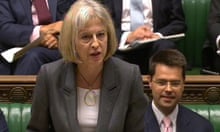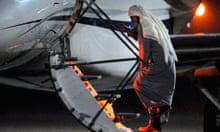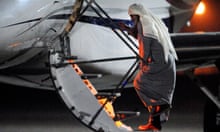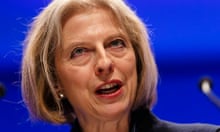The Jordanian parliament has passed a treaty with Britain that paves the way for the final deportation of the radical cleric, Abu Qatada, the Home Office has confirmed.
The lower house of the Jordanian parliament approved the "fair trial" treaty last week and it went through the senate, or upper house, on Tuesday.
The treaty only remains to be formally approved by Jordan's King Abdullah and published in the Jordanian official gazette. It is expected be ratified by the British parliament by next Friday, unless there is a last-minute call for a vote.
The completion of the formalities on the treaty, which includes guarantees that those returned under its provisions will not face a trial based on evidence obtained by torture, will finally clear the way for Abu Qatada to be put on a plane to Amman, possibly within weeks.
A Home Office spokesperson said: "The government remains committed to securing Qatada's deportation as quickly as possible. We are pleased the Jordanian parliament has approved the treaty and we await its full ratification by the Jordanian government and the completion of ratification procedures in the UK."
The cleric informed the home secretary, Theresa May, last month that he was willing to return voluntarily to Jordan once the "fair trial" treaty had been put in place. May has yet to decide whether a fresh deportation order will be needed once the treaty takes effect to put the cleric on a plane. Theoretically the cleric could launch a further judicial appeal but that would mean going back on his undertaking to return.
Abu Qatada has been repeatedly detained in Britain as an international terror suspect over the past 12 years. British judges say the cleric, who was a key figure in al-Qaida-linked activities in the UK, remains a threat to national security with a wide support network. He is currently held in Belmarsh high-security prison. One his return to Jordan he will face terror charges relating to bomb attacks in the late 1990s. He had been tried and convicted on these charges in absentia.
The European court of human rights and senior British judges have both ruled that it would amount to a "flagrant denial of justice'' if Qatada had been returned to Jordan without assurances that he would not face a trial based on evidence obtained by torture.
The Jordan Times reported that the treaty on mutual legal assistance on criminal matters between Jordan and the UK was approved by the lower house of parliament last Tuesday.
Several leading MPs called for its rejection but it was passed after the Jordanian prime minister, Abdullah Ensour, stressed that it would also allow Jordan to bring back "certain public figures suspected of corruption" who are now living in Britain.
Two leading MPs criticised as "shameful" a reference in the preface to the treaty to relations between the UK and Jordan as "historical". One MP pointed out that Britain had been the occupying colonial power in Jordan for a long time.
Qatada's lawyers told a bail hearing in London last month that the treaty meant that for the first time in 12 years he felt safe in returning to Jordan: "It substantially raises the prospect of acquittal in what we say are tainted charges," said his lawyer.
They added that Qatada had "been deprived of his liberty more than any other non-convicted person in British history".
